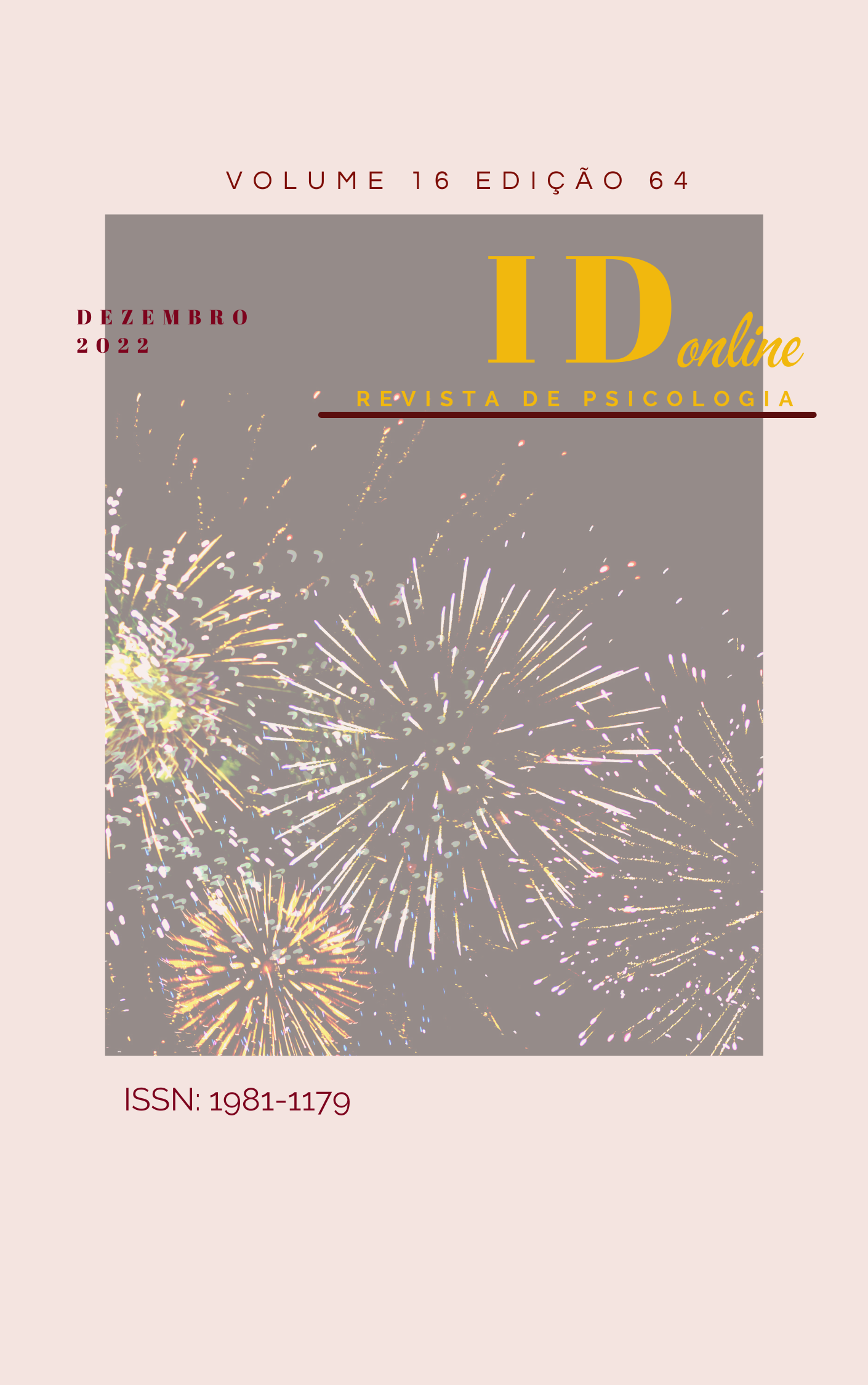Políticas Públicas de Inclusão e Capacitação do Profissional de Libras na Educação Básica
DOI:
https://doi.org/10.14295/idonline.v17i69.3917Palavras-chave:
Dificuldades docentes, Políticas públicas, Profissional de librasResumo
Esta é uma pesquisa qualitativa por revisões bibliográficas, artigos, livros e site referente às políticas públicas de inclusão e capacitação de profissional de libras (professor, intérprete e especialista do AEE) no ensino regular. Essa pesquisa dar início com o contexto histórico da educação do surdo no Brasil, buscando compreender suas origens. Trazendo também os avanços nas leis com todas as lutas e resistências a educação dos surdos ganhou uma nova etapa da história com a legalização da lei n° 10.436/2002, que reconhece a libras como meio legal de comunicação entre a comunidade surda brasileira, e o decreto n° 5.626- que modifica a realidade educacional existente, onde exigiu as escolas bilingues. Dando uma e face maior na qualificação do profissional, nos recursos pedagógicas, no ambiente escolar apropriado para a melhor qualificação desses estudantes. Essa pesquisa ampara a necessidade de garantia e assegurar os direitos da comunidade surda, apontando as dificuldades e as políticas públicas existentes que assegura os direitos, através da LDB (Lei de diretrizes e bases da educação nacional.), buscando trazer a importância do profissional e do intérprete de libras para a educação brasileira e as dificuldades que os docentes enfrentam para atuar em sala de aula. Com tudo foi possível analisar que fazer-se necessário maior qualificação para os profissionais de Libras, mais investimentos para materiais pedagógicos, mais investimentos na estruturação do ambiente escolar que esses alunos estão inseridos e mais recursos tecnológicos para qualificação desses alunos e docentes.
Downloads
Referências
BRASIL. Lei nº 10.436, de abril de 2002. Brasília, DF: Presidente da República,2002. Disponível em:http://www.planalto.com.gov.br/ccivil_03/_leis/2002/lei/10436.htm.
BRASIL. Lei nº 14.191,de agosto de 2021. Brasília, DF: Presidente da República,2021. Disponível em:http://www.planalto.com.gov.br/ccivil_03/_leis/2021/lei/14191.htm.
BRASIL. Lei nº 9.394, de dezembro de 1996. Brasília, DF: Presidente da República,1996. Disponível em:http://www.planalto.com.gov.br/ccivil_03/_leis/1996/lei/9394.htm.
BRASIL. Lei 13.146, de julho de 2015.Brasilia, DF: Presidente da República, 2015.Disponivel em:http://www.planalto.com.gov.br/ccivil_03/_a2018/2015/lei/13146.htm.
BRASIL. Lei nº 12.319, de setembro de 2010. Brasília, DF: Presidente da República,2010.Disponivelem:http://www.planalto.com.gov.br/ccivil_03/_leis/2010/lei/12319.html.
BRITO, Maria Durciane Oliveira et al. Avaliação de Aprendizagem e o Aluno Surdo- Um Estudo de Caso na Cidade de Tutóia-MA. RACE-Revista de Administração do Cesmac, v. 6, p. 49-54, 2020. DOI: https://doi.org/10.46420/9786599064180cap5
DE OLIVEIRA, Thabata Fonseca; KELMAN, Celeste Azulay; IVENICKI, Ana. Ensino de Geografia para Surdos: Reflexões Multiculturais. Atos de Pesquisa em Educação, v. 15, n. 2, p. 631-651, 2020 DOI: https://doi.org/10.7867/1809-0354.2020v15n2p631-651
INSTITUTO BRASILEIRO DE GEOGRAFIA E ESTATÍSTICA (IBGE). Censo Brasileiro de 2022. Rio de Janeiro: IBGE, 2022.
PESQUISA NACIONAL DE SAÚDE – PNS. Ciclos de vida : Brasil / IBGE, Coordenação de Trabalho e Rendimento. - Rio de Janeiro: IBGE, 2021.139p.
REILY, Lucia. O papel da Igreja nos primórdios da educação dos surdos. Revista Brasileira de Educação, v. 12 n. 35 maio/ago. 2007. DOI: https://doi.org/10.1590/S1413-24782007000200011
SANTOS, Adriana Dantas Wanderley dos. Políticas de Inclusão: interpretando as ideologias que sustentam o atendimento educacional aos alunos com surdez no Brasil. 2008. (monografia)
SILVA, Naiane Cristina; CARVALHO, Beatriz Girão Enes. Compreendendo o Processo de Inclusão Escolar no Brasil na Perspectiva dos Professores: uma Revisão Integrativa. Revista brasileira de educação especial, v. 23, n. 2, p. 293-308, 2017. DOI: https://doi.org/10.1590/s1413-65382317000200010
SOUZA, Adriana Alves Novais. A Formação de Professores de Língua Portuguesa para o Ensino de Pessoas Surdas. Encontro Internacional de Formação de Professores e Fórum Permanente de Inovação Educacional, v. 11, n. 1, 2018.
STROBEL, L.K. A visão histórica da in(ex)clusão dos surdos nas escolas. ETD. Educação Temática Digital, Vol. 7. Nº 2, 2006, pp. 243- 252. Disponível em: http://143.106.58.55/revista/viewarticle.php?id=125&layout=abstract. Acesso em: 15/02/2019.
TARDELLI, R. A televisão, o surdo e a escola: relações possíveis. Ribeirão Preto: Centro Universitário Moura Lacerda, 2008. In: PEDROSO, C.C.A. ROCHA, J. C. de M. Fundamentos da Educação Inclusiva. Batatais: Ação Educacional Claretiana, 2014.
Downloads
Publicado
Como Citar
Edição
Seção
Licença
Copyright (c) 2023 Espedita Micaelle Barbosa da Silva, Juliana Iraci Gomes da Rocha Santos

Este trabalho está licenciado sob uma licença Creative Commons Attribution-NonCommercial 4.0 International License.
Os autores detêm os direitos autorais sem restrições, devendo informar a publicação inicial nesta revista, em caso de nova publicação de algum trabalho.










